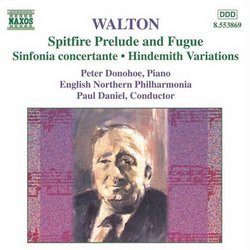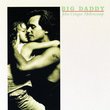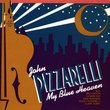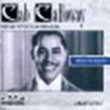| All Artists: William [composer] Walton, Paul Daniel, English Northern Philharmonia, Peter Donohoe Title: William Walton: Spitfire Prelude and Fugue; Sinfonia concertante; Hindemith Variations Members Wishing: 0 Total Copies: 0 Label: Naxos Release Date: 6/1/1999 Genres: Special Interest, Soundtracks, Classical Styles: Marches, Forms & Genres, Symphonies, Theatrical, Incidental & Program Music, Historical Periods, Modern, 20th, & 21st Century, Symphonies Number of Discs: 1 SwapaCD Credits: 1 UPC: 730099486927 |
Search - William [composer] Walton, Paul Daniel, English Northern Philharmonia :: William Walton: Spitfire Prelude and Fugue; Sinfonia concertante; Hindemith Variations
CD DetailsSimilarly Requested CDs
|
CD ReviewsVery good on its own terms F. Behrens | Keene, NH USA | 09/26/1999 (5 out of 5 stars) "William Walton's music on 8.553869 does not depend on extra-musical elements. His Spitfire Prelude and Fugue, Sinfonia Concertante, Hindemith Variations, and March are played with style by pianist Peter Donohoe and the English Northern Philharmonia under Paul Daniel. I find the Variations the gem of this collection; but then again I am very fond of the variation-style of development. Be sure also to check into Walton's music for Olivier's "Hamlet," "Henry V" and "As You Like It," also on Naxos label." Walton in Several Guises Thomas F. Bertonneau | Oswego, NY United States | 10/04/2000 (4 out of 5 stars) "William Walton (1902-1983) came on strong in the 1920s with his "Façade," a cheeky Stravinskian suite to nonsense poems by Edith Sitwell. He soon developed into a rather slow-working master of large traditional forms such as concerto and symphony; he also worked in the motion picture industry in Great Britain and provided music for cinematic adaptations of Shakespeare. Naxos has committed to issuing the complete orchestral music and much has already come into the catalogue, including the two symphonies and the three string concertos. The present disc gathers smaller orchestral pieces. The Spitfire Prelude and Fugue derives from the score that Walton contributed to the film "The First of the Few" (1942), about R. J. Mitchell, the aeronautical engineer who designed the famous Supermarine fighter-interceptor. The Fugue cleverly suggests a host of aerial combatants mixing it up in a dogfight; but the denouement is heavenly rather than martial, related perhaps to the fact that Mitchell died soon after the prototype of the Spitfire flew - but his spirit lives on angelically, as it were. (No wonder the producers of the 1968 film "The Battle of Britain" wanted Walton to do the full score, but Walton was tired; Ron Goodwin wrote most of the music while Walton contributed only the balletic "Battle in the Air," which was orchestrated, not by the composer himself, but by Malcolm Arnold.) The Sinfonia Concertante comes from 1927 and constitutes Walton's first large-scale work for the concert-hall. The jazziness of "Façade" is still present, but submerged into a more serious context. Both a symphony and a concerto, the Sinfonia telegraphs the two main channels of Walton's development over the next decade. The Variations on a Theme by Hindemith (1963) represent late Walton, who, in this score, ingeniously develops a theme from Hindemith's Cello Concerto, along with the B-A-C-H theme, and throws in quotations from the opera "Mathis der Maler" as well. This is one of those works, like Bliss' Discourse for Orchestra or Rawsthorne's Symphonic Variations, that takes seemingly inauspicious material and works it out in such a way that the procedures themselves become fascinating. But the score is by no means dry or academic. Indeed, Walton pays homage to Hindemith's keen sense of orchestral color. A brief March, written to serve a BBC documentary on "The History of the English Speaking Peoples," fills out the program. Unusual repertory in cracking good performances. I especially like the Variations." A challenge and a delight for the ears Mark Swinton | 02/29/2000 (4 out of 5 stars) "William Walton was one of the most gifted composers of twentieth century Britain. He knew the musical consciousness of this country, particularly as it developed over the years, and his style was thus wide-ranging and all-accomodating, as in the Sinfonia Concertante which has all the elements of full-blooded nobility you would expect from him- with more than a few surprises along the way. Peter Donohoe plays with fire and finesse throughout, but especially in the Sinfonia, and Paul Daniel (conductor of the music at the Millennium Dome Opening Ceremony) guides the orchestral forces with equal aplomb.I say this is a challenge, and no doubt it will be for some ears- I find that whilst this disc is a taste of the best of British, it perhaps not so pleasant a taste as Vaughan-Williams or Elgar. Nevertheless, I was very taken with this recording when I first heard it and I hope you will be as well."
|


 Track Listings (17) - Disc #1
Track Listings (17) - Disc #1








